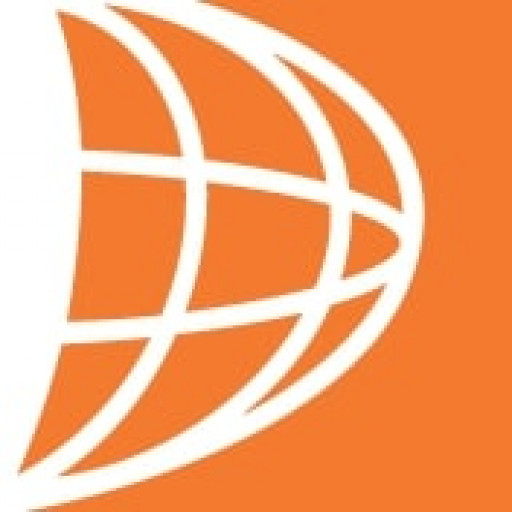Photos of university / #hogeschoolutrecht
The Bachelor’s degree in Engineering at HU University of Applied Sciences Utrecht offers students a comprehensive and practical education in various engineering disciplines. This program is designed to provide a strong theoretical foundation complemented by hands-on experience, preparing graduates to meet the technological and infrastructural challenges of today’s rapidly evolving world. Students will explore core topics such as mechanical systems, electrical components, control systems, and sustainable technologies, gaining the skills necessary to innovate and optimize engineering solutions across industries. The curriculum emphasizes problem-solving, design thinking, and project management, encouraging students to work collaboratively in multidisciplinary teams. Throughout the program, students participate in laboratory exercises, real-world projects, and internships with industry partners, ensuring they acquire relevant practical skills and professional experience. The program also emphasizes the importance of sustainable development and responsible engineering practices, aligning technical expertise with societal needs. Graduates will be equipped to pursue careers in manufacturing, energy, consulting, and technology sectors, or to continue their education in specialized master's programs. Dedicated faculty members provide mentorship and support to foster creativity, critical thinking, and lifelong learning. With access to state-of-the-art laboratories and industry links, students gain valuable insights into current technological trends and innovations. Upon completion, graduates will be well-prepared to contribute to the design, development, and maintenance of engineering systems that improve everyday life and address global challenges. The program’s flexible structure allows for specialization and elective courses, enabling students to tailor their education to their interests and career aspirations. Ultimately, HU University of Applied Sciences Utrecht’s Engineering program aims to develop competent, innovative, and responsible engineers ready to make a positive impact in their profession and society.
The Bachelor of Engineering in Engineering at HU University of Applied Sciences Utrecht offers a comprehensive and practical education designed to prepare students for a dynamic career in the engineering industry. This programme focuses on developing technical expertise, problem-solving skills, and innovative thinking to address real-world challenges across various engineering disciplines. Throughout the programme, students gain in-depth knowledge of core engineering principles, including mechanics, electronics, materials science, and digital technologies, which form the foundation for designing, analyzing, and improving engineering systems.
The curriculum is structured to combine theoretical coursework with hands-on laboratory sessions,project work, and internships. Students have opportunities to work on real engineering problems in collaboration with industry partners, providing valuable practical experience. The programme emphasizes sustainable development, safety, and ethical considerations, ensuring graduates are equipped to contribute responsibly to society.
Students can choose to specialize in areas such as mechanical engineering, electrical engineering, or mechatronics, tailoring their education to align with their career ambitions. The programme also prepares students for innovation and entrepreneurship within the engineering sector. Additionally, students develop essential soft skills, including teamwork, communication, and leadership, which are crucial for professional success.
The teaching approach integrates digital learning tools, modern labs, and industry visits to keep students updated on latest technological advancements. With a strong focus on employability, the programme includes career development modules, CV workshops, and networking events with potential employers. Graduates of the Engineering programme at HU Utrecht are well-equipped to pursue careers in engineering companies, research institutions, or to continue their studies at master’s level.
The programme is designed to be accessible for international students, fostering a diverse learning environment. Upon completion, students will have gained a solid foundation to contribute effectively to the innovative and sustainable engineering solutions of tomorrow.
Other requirements
- vooropleiding (ISPAC: vereiste vooropleiding) Een bachelordiploma Engineering of een verwante opleiding
- werkervaring (ISPAC: vereiste werkervaring) Minimaal drie jaar relevantie werkervaring.
The financing of the Engineering programmes at HU University of Applied Sciences Utrecht is primarily structured around a combination of government grants, student contributions, and institutional funding. Dutch higher education institutions like HU Utrecht typically charge tuition fees that are regulated by the government, which are relatively affordable compared to international standards. For EU/EEA students, the tuition fee for Bachelor’s programmes is generally set at a standard rate, which during recent academic years has been approximately €2,300 per year. Non-EU/EEA students may be required to pay higher tuition fees, often exceeding €7,000 annually, depending on the specific programme and regulations.
Students are usually expected to finance their studies through various sources, including personal savings, family support, or scholarships. The Dutch government offers a student loan scheme for Dutch and EU students, providing low-interest loan options that can cover tuition fees and living expenses. These loans are typically repayable after graduation, with repayment terms linked to the graduate's income.
The university also participates in scholarship programmes for international students, such as the Holland Scholarship, which offers partial funding to talented applicants. Additionally, some students may secure grants from external organizations or industry partners aimed at supporting engineering education.
Living costs in Utrecht, which impact overall financing needs, are estimated to be around €900–€1,200 per month, covering accommodation, food, transportation, and personal expenses. Many students choose to live in shared accommodation or student housing to reduce costs, which is facilitated by the university’s partnership with local housing organizations.
Financial aid advice and planning are provided by the university’s student service centers, which assist students in understanding their options for funding and managing their finances throughout the programme duration. International students are advised to plan ahead financially, considering both tuition fees and living expenses, and to explore available scholarships and loans.
The university also emphasizes the importance of work experience as part of the study programme, with many students taking part-time jobs related to their field of study. Such opportunities not only supplement their income but also enhance their practical skills and employability after graduation.
In summary, the financing of Engineering studies at HU Utrecht involves a mix of tuition fees, government loans, scholarships, personal funding, and part-time work, tailored to support students throughout their educational journey. The university’s supportive infrastructure ensures that students have access to financial planning resources to help them manage the costs associated with their studies effectively.
The Bachelor’s programme in Engineering at HU University of Applied Sciences Utrecht is designed to prepare students for a dynamic and versatile career in the engineering field. The curriculum offers a solid foundation in core engineering principles, combined with practical skills and innovative problem-solving techniques. The programme emphasizes interdisciplinary learning, enabling students to work across various engineering disciplines such as mechanical, electrical, and civil engineering, ensuring a broad understanding of the engineering domain. Students benefit from a blend of theoretical knowledge and hands-on experience through laboratory work, projects, internships, and collaboration with industry partners.
The faculty at HU Utrecht is committed to integrating real-world challenges into the educational process, thus fostering critical thinking and adaptability among students. The programme includes modules in mathematics, physics, computer-aided design, materials science, systems engineering, and sustainable development, preparing graduates to address complex engineering issues responsibly. Furthermore, students develop essential soft skills such as teamwork, communication, and project management, which are crucial for their professional growth.
Internationalization is a core aspect of the programme, with opportunities for students to participate in exchange programmes, international projects, and collaborations with partner universities worldwide. The programme aims to produce graduates who are not only technically proficient but also socially responsible and innovative, capable of contributing to sustainable development and technological advancement. Upon completion, graduates can pursue careers in various sectors including manufacturing, construction, consultancy, and technology development, or continue their studies at master’s level for specialized expertise. HU Utrecht’s engineering programme is renowned for its practical orientation, industry connections, and commitment to fostering the next generation of competent engineers prepared for the global market.






